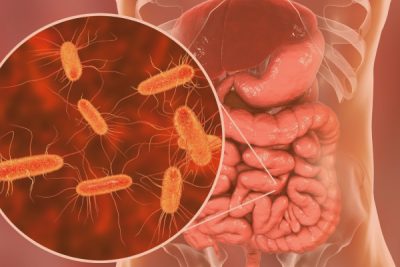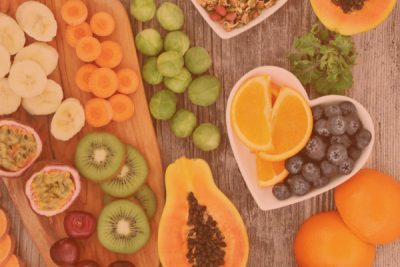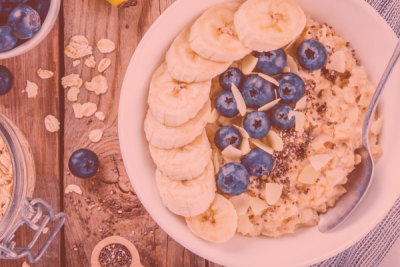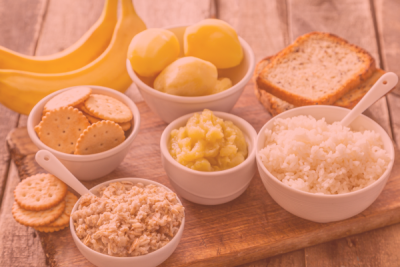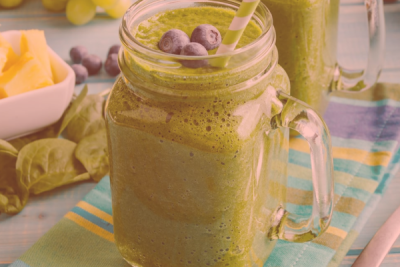A healthy gut microbiome (or the community of microorganisms in your intestines) is essential for overall well-being. Your gut, also known as the gastrointestinal or digestive tract, plays an important role in breaking down food, absorbing nutrients, strengthening your immune system, improving mood, preserving mental health, and keeping your heart and skin healthy.
While some foods increase the count of good or beneficial bacteria in your gut, others either decrease the count of beneficial microbes or increase that of harmful or bad ones.
Best Foods For Gut Health
- Foods rich in dietary fibre: Fibre is an essential nutrient that plays a crucial role in maintaining a healthy gut. By stimulating the growth of beneficial bacteria such as Bifidobacteria.
High fibre foods such as fruits, vegetables, whole grains, legumes and nuts, promote the growth of beneficial bacteria in the gut microbiome. They also keep the digestive system functioning properly, prevent constipation and reduce inflammation.
Fibre may be soluble or insoluble. Soluble fibre dissolves in water and lowers cholesterol and regulates blood sugar levels by binding to bile acids in the gut, whereas insoluble fibre does not dissolve in water and adds bulk to the stool, promotes bowel regularity and helps prevent constipation.
Foods rich in soluble fibre include apples, oats, peas, beans, and citrus fruits. Soluble fibre Foods rich in insoluble fibre include brown rice, whole wheat, seeds, and nuts. - Prebiotic foods: Prebiotic foods have become popular in recent years due to their ability to promote gut health. The human gut comprises trillions of bacteria that play an important role in digestion, immunity and overall health.
Prebiotics are mainly fibre or complex carbs that human cells cannot digest. Instead, gut bacteria break them down and use them as an energy source for probiotics. They improve the growth and diversity of probiotic bacteria in the gut, resulting in enhanced digestive and immune system function.
Foods rich in prebiotics include onions, bananas, leeks, garlic, asparagus, oats, legumes (such as kidney beans, lentils, and chickpeas), and apples. They not only increase beneficial bacteria (Bifidobacteria) abundance but could reduce triglyceride, cholesterol, and insulin levels, and therefore, prevent certain medical conditions. - Probiotic foods: Probiotics are live organisms that provide a range of health benefits when consumed adequately. These microbes (usually bacteria) that work by introducing good bacteria into the gut to restore the balance of the gut microbiome.
Probiotics are abundant in fermented foods as follows:-
- Fermented foods: Fermented dairy products such as kefir, kimchi (fermented cabbage), sour cream, sauerkraut, unsweetened yogurt, kombucha, miso, and tempeh are rich sources of probiotics. They help in balancing the microbiome and reduce inflammation.Probiotics can also be consumed as supplements that are rapid-acting and can be readily consumed. Fermented foods increase the abundance of beneficial bacteria such as Lactobacilli and decrease that of harmful bacteria such as Enterobacteriaceae.
- Polyphenol-rich foods:Polyphenols are plant chemicals that gut bacteria love. They are found in apples, berries, red onions, tea, artichokes, dark chocolate, and vegetables.Gut bacteria feed on polyphenols and produce beneficial substances, which in turn, have a positive influence on medical conditions such as diabetes, cancer, and cardiovascular diseases.
-
- Anti-inflammatory foods: A key factor that can influence gut health is inflammation. Chronic inflammation in the gut can result in gastrointestinal disorders, autoimmune diseases and mental health conditions.
Anti-inflammatory foods contain compounds and nutrients that can reduce inflammation in the body and efficiently improve gut health. Some of the anti-inflammatory foods are as follows:
- Fatty Fish– Fish such as sardines, salmon, tuna, and anchovies are rich in omega-3 fatty acids, also present in walnuts and flax seeds. Omega-3 fatty acids can reduce gut inflammation and thereby improve gut health.
- Leafy greens: Vegetables such as spinach are packed with fibres and nutrients that decrease inflammation and facilitate the growth of good bacteria.
- Turmeric: Turmeric is a spice containing an anti-inflammatory and therapeutic compound known as curcumin which can reduce inflammation in the gut and increase overall immunity.
- Berries-Raspberries, strawberries, and blueberries are rich in antioxidants that can lower inflammation. Berries also provide fibres which promote gut health.
Worst Foods For Gut Health
Avoiding or reducing the intake of processed, refined and fried foods, alcohol, caffeine, sugary snacks, red meat, artificial sweeteners, and unhealthy fats can help maintain a healthy gut. These foods disrupt the balance of gut bacteria and lead to inflammation, which can negatively impact gut health.
It is important to stay hydrated by drinking plenty of water throughout the day to maintain healthy digestion and promote regular bowel movements.
Also, incorporating mindful eating habits, such as chewing thoroughly, eating slowly, and avoiding overeating, can support gut health.
The Bottom Line:
Incorporating nutrients for a healthy gut in the food you eat can significantly improve your overall health, encourage the growth of beneficial gut bacteria, and reduce inflammation.
Consume more: Prebiotics, Probiotics, fibre, fermented foods, and polyphenols
Consume less: red meat, artificial sweeteners, alcohol, and processed foods.



